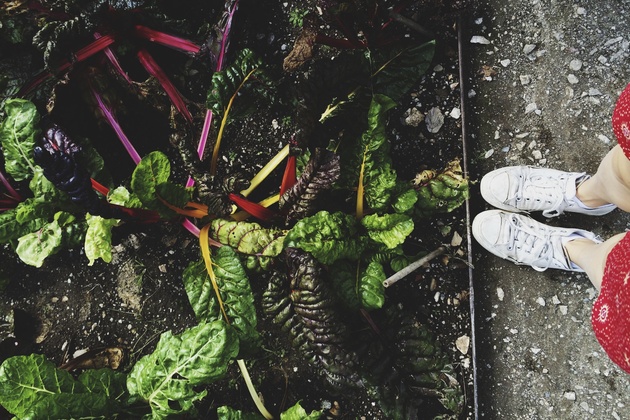This article was written in January 2019 and originally published by Huffington Post UK.
One of my new years resolutions is to become a better gardener. This includes houseplants, of which I currently only have four spider plants and a Christmas cactus – all the hardest plants to kill. If I could choose a universal resolution for the people of Britain in 2019 it would be to all become better gardeners – and in turn, get more grounded.
2019 may have only just begun, but chaos is already on the menu. With nobody seemingly having any clue what’s to come when it comes to Brexit – not even our own prime minister – fears over what lay ahead are all anyone can talk about. I am pretty sure at this point that many readers are getting rather bored of the Brexit chat – it is clear that the majority of Brits feel uncertainty, so what can we do to feel more grounded this year?
Step outside. Go on, I dare you.
It feels pretty good to feel the earth beneath your feet doesn’t it? There is a sense of freedom, like an energy force radiating right out from underneath your toes. Connecting with the outdoors has become a foreign task to many of us. We go from our car, to the office, to the lunch canteen, back to the office, back to the car and into our homes.
We have a bizarre fear of mud. It’s as if dirt isn’t the thing that we enjoyed playing with as kids, the thing that helped our bodies to grow a strong immunity to a world filled with man-made bugs. If you want a little perspective on what’s happening ‘out there’, the best place to start is right underneath your feet.
To add a little practicality into the mix here, one way to re-gain this connection - and get something pretty amazing out of it - is to start growing your own food. Amidst our daily indoor tasks, food shopping is high up on the list. The retail market value of supermarkets in the UK is £179billion per year. However, the thing about only buying your food in supermarkets is that you miss out on a huge variety of fruit and veg that doesn’t meet the very narrow criteria sold in large retail stores.
Did you know that there are actually hundreds of types of tomato; sweet corn is only one of four basic types of corn and that a courgette is actually a type of squash? Spend a day volunteering at your local community farm and I guarantee that you will come away awe-struck at how many vegetables you didn’t recognise that can be grown in the UK.
Growing your own food doesn’t have to be a laborious task - welcome to 2019, where you can speak into the air and an electronic box will play you your favourite song. There are countless ways to make food growing less complicated and you don’t even need to have a big garden to do it. Let’s be real, there’s probably an app for this. Start small, get some seeds and sow them in a tub on your windowsill – chillies are often a good one to start with. Move on to tomatoes, courgettes or salad. If you don’t have your own garden or growing space then look into food growing projects in your local area.
In the moments when it feels like uncertainty rules your life, take some time out to get grounded. Get your hands dirty, let soil plant itself in every crevice of your clothing and gain some perspective amidst all of the chaos.
Images and words: Rebecca Tyers
Originally published here.











